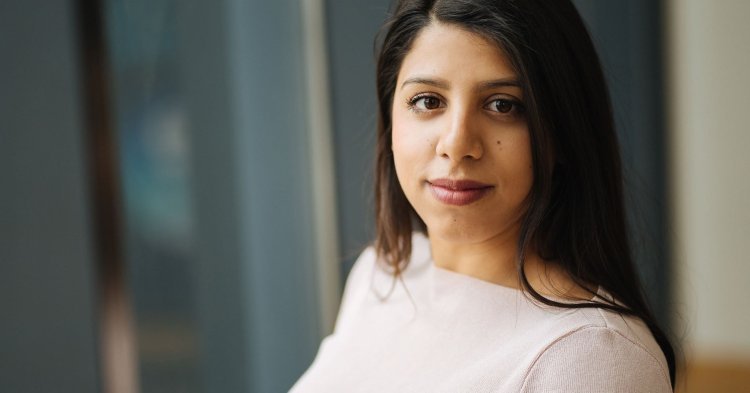The Roma are a traditionally itinerant and culturally as well as linguistically diverse ethnic group which nowadays constitutes Europe’s largest ethnic minority, with 6 million living in the EU and 4 million in the enlargement region. Their history is marked by persecution ever since their arrival on the continent from northern India around a thousand years ago, which eventually resulted in the Porajmos, the Roma Holocaust. But just like antisemitism, antigypsyism survived into the 21st century: Romani people still face inequality and marginalisation due to prejudices of crime and antisocial behavior, and many live in sparse conditions.
Since the entry into force of the EU Charter of Fundamental Rights, the EU has ramped up efforts to improve the situation. By including this issue in its enlargement strategy in the framework of human rights, these efforts also go beyond Member States. However, institutional and legal change always has to be accompanied by societal transformation to create the desired effect. Therefore, the work done by Maria and her peers remains incredibly important for the Roma cause.
TNF: Thank you for speaking to us, Maria! To begin with, could you tell our readers about yourself and the work you’re doing?
Maria: I’m a young Roma girl from Bulgaria. I’m in my last year as a midwifery student at the Medical University of Varna. I’m a volunteer and an activist. I’m working with other young Roma in a mentorship programme. Also, I’m part of a team in a social enterprise called “The Social Teahouse” where we support kids and adolescents without parental care; I’m a volunteer coordinator there and I really enjoy doing social work.
How does it feel to be “Young European of the Year”?
When I got the news that I’m the Young European of the Year, I was surprised. I didn’t expect that because of all the nominees were so inspiring and incredible. I’m happy that I was chosen and that for me means first and foremost appreciation; that someone appreciates my work, the Romani cause and all the effort that we, the Romani youth, are doing for our communities to change the situation for the Roma people. I feel happy that I can promote our cause and speak out!
Winners of the award are given €5,000 to finance an internship or go towards a project which promotes European integration. Have you already considered what you will do?
It is an important decision for me and I want to do the best with it. The way that I spend the money has to completely relate to my cause and principals.
How did you become active and what’s your main drive?
I always had this feeling of social injustice about my community and when I was in high school, I came across a Romani youth organisation and met young people who were active and volunteers. Then I realised that I can be proud as a Roma and I can bring social change by being an example for my community and that I can help other Roma kids be proud of who they are and achieve whatever they want. I realised that we as a community are unrepresented at high levels and if we, the young Roma, don’t do anything, nothing will change. So I would say my main drive is my community and my ambitions to bring about social change.
Why is the Roma community still facing marginalisation in 21st century Europe?
That is the result of political behavior and actions; no one has done anything to improve the conditions that Roma people are living in. Over the years many people have been left without basic needs of water and electricity in Bulgaria. It’s obvious that political strategies don’t work because they are written by people who have never been inside the problem. They don’t understand it and they don’t let Roma people speak up for themselves and their needs. But when it comes to reports and statements, they are making excuses instead of taking the situation seriously or caring at all. Another problem is the hate speech that is promoted by political representatives that affects public opinion.
Has the situation improved at all, especially regarding health and housing conditions?
We are living in a European country, but we still have places in which Roma people are isolated from other citizens, places without water and electricity. Many Roma kids are going to segregated schools where the quality of education is low. We see very little improvement and any improvement is only thanks to the non-governmental organisations who are who are running housing or health projects as well as educational initiatives. But we still don’t have a real national strategy on improving the conditions of the Romani communities.
Have you been a victim of discrimination yourself?
During high school I faced discrimination. I was often underestimated because of my ethnicity. As a teenager, I tried to find a summer job but wasn’t hired as a waitress because I’m Roma. Some people think that Roma don’t have potential and that we are just not good enough. Actually, that motivated me to prove that we can achieve what we want and that we are not worth less than other people or any other ethnic group.
Does your generation see and handle things differently to your parents and grandparents?
There is a big difference between the young generation and the older generations. We’re now the first or second generation to enjoy better education. Therefore, many of us are better prepared for the hate outside the community and young Roma are now braver to speak out and to stand up for the rights of our people.
How about political representation?
Unfortunately, in Bulgaria we don’t have representatives in high positions. We have some local Roma representation, but not in all cities or municipalities. I do wish we had more political representation. That would be helpful indeed. Especially now during the corona crisis, there is a lot of hate speech against Roma people coming from the political level – where, as I said, we are not sufficiently represented to counter it.
Speaking of which, how is the corona crisis affecting the Roma community?
This corona crisis is difficult for every one of us, but especially for the Romani communities. Roma people are more vulnerable in this situation. There are people without jobs, without savings and without food or medical supplies. Roma kids have difficulties with online education. Some of them don’t have access to computer devices and a good internet connection. It’s hard to imagine people are living in the 21st century without their basic needs being fulfilled. As mentioned, some places do not have access to tap water and electricity. I’m thinking: what kind of society we are that we still let people to struggle that way?
The good thing is that there are medical and educational mediators in some of the Roma areas who are helping with information, food, medical supplies and educational materials. In this hard situation, some people in the communities support and help the poor, the elderly or people in need by themselves.
What role does the EU play in the Roma cause?
European institutions can monitor whether human rights promises are being kept and draw attention to discrimination in EU countries. European initiatives are therefore important of course, especially reports on the work of the countries that are implementing strategies and spending money on Roma issues. I think that’s the only way to hold political actors responsible for their actions. However, there are even cases of Bulgarians in the European institutions who use hate speech – and that is truly shameful. It eventually affects the opinion of European citizens towards Roma people and, in return, my people’s trust in the EU.
We need more Roma participation in awareness-raising, decision-making, and empowering. One of the best examples is the European Roma Week, which has been cancelled this spring due to the coronavirus but I hope it will take place in autumn and maybe I’ll have the opportunity to take part. We definitely need more such initiatives, to start talking about the chances that Europe can bring for the Roma people by exchanging ideas and by showing how we can empower each other transnationally.
All in all, are you optimistic about the future? Is your work already successful and bearing fruit?
Of course, I’m optimistic about the future. I think that the situation is, albeit slowly, getting better and better. We have an increasingly active Roma youth, more activists and people who hold civil positions, insist on Roma rights and thereby improve the situation. In our communities, we have more role models and people who are engaging others in initiatives, especially more young leaders. I know that it will take time for things to change, but I can see the difference compared to a couple of years ago.


Follow the comments: |
|
